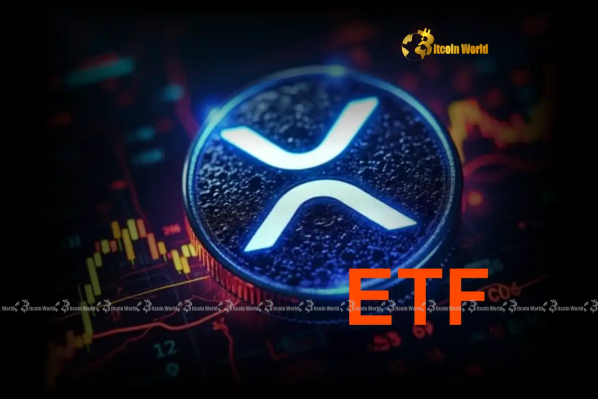BitcoinWorld

Revolutionary AI Video Analysis: Samsung Next Empowers Memories.ai with $8M Funding
In an era where digital content reigns supreme and data is the new gold, the ability to effectively process and understand vast amounts of visual information is paramount. For the cryptocurrency and blockchain community, which thrives on innovation and the efficient management of digital assets, breakthroughs in artificial intelligence (AI) that enhance data processing are always of keen interest. Imagine a world where AI doesn’t just glance at a video but truly comprehends thousands of hours of footage, extracting deep, contextual insights. This isn’t a futuristic fantasy; it’s the groundbreaking reality being shaped by Memories.ai, an innovative AI startup that recently secured a substantial $8 million in seed funding, with a notable backing from Samsung Next. This significant AI funding round underscores a pivotal shift in how we approach video intelligence, promising a future where vast visual data becomes truly actionable.
Unlocking the Power of Long-Context AI Video Analysis
Current artificial intelligence models, while incredibly sophisticated, often hit a wall when faced with the challenge of long-form video content. They can summarize a short clip or identify objects in a single frame, but asking them to make sense of hundreds or even thousands of hours of footage, especially across multiple cameras or diverse sources, presents a monumental hurdle. This limitation has profound implications for various industries. Security firms, for instance, grapple with mountains of surveillance footage, seeking to identify anomalies or specific events without manually sifting through days of video. Similarly, marketing companies struggle to derive meaningful insights from extensive video campaigns, product shoots, or social media trends, missing critical patterns that span numerous clips and prolonged durations. The sheer volume of data overwhelms traditional AI approaches, leading to superficial analysis and missed opportunities.
Enter Memories.ai, a visionary AI startup that is directly confronting this problem. Their revolutionary AI platform is designed to process an astonishing 10 million hours of video, providing an unparalleled contextual layer that transforms raw footage into intelligently organized, searchable data. This includes sophisticated indexing, precise tagging, segment identification, and comprehensive aggregation. For businesses drowning in visual data, Memories.ai offers a lifeline, turning what was once an unmanageable deluge into a meticulously cataloged and easily queryable archive.
The brains behind Memories.ai are Dr. Shawn Shen, a former research scientist at Meta’s Reality Labs, and Enmin (Ben) Zhou, an ex-machine learning engineer also from Meta. Their combined expertise and deep understanding of large-scale AI challenges position Memories.ai at the forefront of this emerging field. As Dr. Shen articulated, “All top AI companies, such as Google, OpenAI and Meta, are focused on producing end-to-end models. Those capabilities are good, but these models often have limitations around understanding video context beyond one or two hours. But when humans use visual memory, we sift through a large context of data. We were inspired by this and wanted to build a solution to understand video across many hours better.” This human-centric approach to AI, mimicking our natural ability to recall and contextualize memories over time, is what sets Memories.ai apart in the competitive landscape of AI video analysis.
Why Samsung Next Investment is a Game Changer for Memories.ai Startup
The recent announcement of an $8 million seed funding round for Memories.ai is a resounding vote of confidence from some of the tech industry’s most discerning investors. The round was spearheaded by Susa Ventures, with significant participation from a stellar lineup including Samsung Next, Fusion Fund, Crane Ventures, Seedcamp, and Creator Ventures. Dr. Shen revealed that the company initially aimed for a $4 million raise, but overwhelming investor interest led to an oversubscribed round, doubling their initial target. This speaks volumes about the perceived market need and the disruptive potential of Memories.ai’s technology.
The investment rationale from these venture capital heavyweights provides fascinating insights into the future of AI. Misha Gordon-Rowe, a partner at Susa Ventures, highlighted Dr. Shen’s technical prowess and obsession with pushing the boundaries of video understanding. “Memories.ai can unlock a lot of first-party visual intelligence data with its solution. We felt that there was a gap in the market for long-context video intelligence, which attracted us to invest in the company,” Gordon-Rowe explained. This sentiment echoes the core problem Memories.ai aims to solve: the unmet demand for deep, contextual understanding of vast video datasets.
Perhaps even more compelling is the unique perspective offered by Samsung Next, the investment arm of the global tech giant. Sam Campbell, a partner at Samsung Next, emphasized the consumer-facing potential of Memories.ai’s solution. “One thing we liked about Memories.ai is that it could do a lot of on-device computing. That means you don’t necessarily need to store video data in the cloud. This can unlock better security applications for people who are apprehensive of putting security cameras in their house because of privacy concerns,” Campbell stated. This focus on on-device processing is a significant differentiator, addressing growing concerns about data privacy and security—a topic particularly resonant within the decentralized ethos of the crypto community. The ability to process sensitive video data locally, rather than relying on cloud storage, offers a robust solution for individuals and enterprises seeking enhanced control over their visual information. This strategic backing from Samsung Next investment not only provides crucial capital but also opens doors to potential integrations with Samsung’s vast ecosystem of consumer electronics and smart devices.
Deep Dive into Memories.ai’s Innovative Long-Context Video Technology
So, how exactly does Memories.ai achieve its impressive feats of video comprehension? The startup leverages its proprietary tech stack and advanced models to perform analyses that go far beyond conventional methods. Their process can be broken down into several sophisticated layers:
- Noise Removal and Compression: The initial step involves meticulously cleaning the raw video footage. Memories.ai intelligently removes extraneous noise and then passes the refined output through a highly efficient compression layer. This isn’t just about reducing file size; it’s about identifying and retaining only the most critical data, ensuring that the essence of the visual information is preserved while discarding irrelevant details.
- Indexing Layer: This is where the magic of searchability truly comes alive. After compression, the video data enters an indexing layer that makes it fully searchable using natural-language queries. Imagine being able to ask a system, “Show me all instances of a red car passing by the main entrance between 2 PM and 4 PM last Tuesday,” and getting precise results from thousands of hours of footage. This layer also incorporates sophisticated segmentation and tagging, breaking down long videos into meaningful chunks and applying relevant labels, making granular analysis incredibly efficient.
- Aggregation Layer: Building upon the indexed data, the aggregation layer synthesizes information from the index, providing high-level summaries and enabling the creation of comprehensive reports. This allows users to quickly grasp trends, patterns, and key events without needing to delve into every single segment. It’s about transforming raw data into actionable intelligence.
Currently, Memories.ai is making significant inroads in two primary sectors: marketing and security. In the marketing realm, companies are utilizing the platform to track brand mentions and related trends across social media, enabling them to understand audience engagement and inform their video content strategy. Beyond analysis, Memories.ai also provides tools that assist marketers in the actual creation of new videos, ensuring their output is aligned with identified trends and consumer preferences.
For security companies, the applications are even more critical. Memories.ai’s tools help analyze security footage to identify potentially dangerous actions or unusual patterns of behavior. By reasoning through complex visual sequences, the platform can flag suspicious activities that might otherwise go unnoticed, significantly enhancing threat detection and response capabilities. This level of granular AI video analysis for security purposes represents a monumental leap forward from traditional, labor-intensive monitoring.
The Future of AI Funding: Beyond Current Limitations
While Memories.ai currently requires companies to upload their video libraries for analysis, Dr. Shen envisions a future where integration is even more seamless. The plan is to enable clients to create shared drives and sync content effortlessly, allowing for dynamic, real-time analysis. This future also includes the ability for customers to pose complex, contextual questions, such as: “Tell me all about people I interviewed in the last week,” demonstrating the platform’s potential for personal and professional knowledge management.
Dr. Shen’s long-term vision extends even further, painting a picture of an omnipresent AI assistant that gains context on a user’s life through their photos or via smart glasses. This could lead to a personalized “visual memory” for individuals, revolutionizing how we interact with our digital past. Beyond personal use, he sees this technology playing a crucial role in training humanoid robots to perform intricate tasks and assisting self-driving cars in remembering and navigating diverse routes with enhanced contextual awareness. The potential impact of such advanced long-context video understanding spans across industries, from automation to personal productivity.
The competitive landscape for AI memory layers is certainly heating up, with companies like mem0 and Letta also working on similar solutions, though they currently offer limited video support. Giants like TwelveLabs and Google are also heavily invested in helping AI models understand videos. However, Dr. Shen believes Memories.ai’s solution is more “horizontal,” meaning it’s designed to work flexibly with different video models and applications, giving it a broader appeal and adaptability. With a current team of 15 dedicated individuals, the recent AI funding will be strategically deployed to augment the team and significantly enhance the platform’s search capabilities, ensuring Memories.ai remains at the cutting edge of video intelligence.
The substantial investment in Memories.ai, particularly with the strategic backing of Samsung Next, marks a significant milestone in the evolution of artificial intelligence. By addressing the critical challenge of long-context video analysis, Memories.ai is not only solving immediate industry problems for marketing and security but also laying the groundwork for a future where AI truly understands and remembers the visual world as humans do. This breakthrough promises to unlock unprecedented insights from vast datasets, driving innovation across diverse sectors and bringing us closer to a truly intelligent digital future. As the crypto and blockchain space continues to push the boundaries of decentralized data and AI integration, understanding these foundational advancements in AI is key to appreciating the broader technological shifts at play.
To learn more about the latest AI market trends, explore our article on key developments shaping AI models features.
This post Revolutionary AI Video Analysis: Samsung Next Empowers Memories.ai with $8M Funding first appeared on BitcoinWorld and is written by Editorial Team





